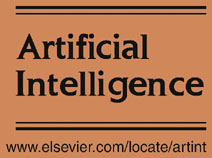UAI 2014 - Workshops
The workshops will be held on Sunday, July 27th.
Workshops: |
|
1. 11th Bayesian Applications Workshop (Workshop website: http://seor.gmu.edu/~klaskey/BMAW2014/index.html) |
|
2. 2nd Multidisciplinary Approaches to Big Social Data Analysis (MABSDA) (Workshop website: http://sentic.net/mabsda/) (Due to low numbers of submissions, this workshop has been CANCELLED) |
|
3. Causal Inference: Learning and Prediction (Workshop website: https://staff.fnwi.uva.nl/j.m.mooij/uai2014-causality-workshop/index.html) |
1. 11th Bayesian Applications Workshophttp://seor.gmu.edu/~klaskey/BMAW2014/index.html Submission Due: Tuesday, 2 June, 2014 Continuing in a successful tradition, the Eleventh Annual Bayesian Modeling Applications Workshop will provide an informal forum for exchange among applications practitioners, tool developers, and researchers. Submissions are solicited of real-world applications of Bayesian models and computational methods. The aim of the workshop is to foster discussion on the challenges of building applications, such as understanding and addressing stakeholder needs; integrating Bayesian models and tools into larger applications; validating models; interacting with users; constrution of models through knowledge elicitation and learning; agile model and system development strategies; and deploying and managing web-based Bayesian applications. The following list of topics is intended to be suggestive and not exhaustive:
The workshop is not restricted to a particular vertical market or discipline. Instead, the workshop encourages inter-disciplinary collaboration and cross fertilization. Final workshop papers will be selected with the goal of fostering discussion of critical issues within the community of practice. Submissions will be peer reviewed and papers will be published online. Authors who wish to withhold their paper from publication (either because it contains references to proprietary data, or because they wish to publish it later at a different venue) can request that only the abstract be published.
Organizers:
|
||||||||||||||||||||||||||||
2. 2nd Multidisciplinary Approaches to Big Social Data Analysis (MABSDA)Due to low numbers of submissions, this workshop has been CANCELLED. Submission Due: Saturday, 31 May, 2014 As the Web rapidly evolves, Web users are evolving with it. In the era of social connectedness, people are becoming increasingly enthusiastic about interacting, sharing, and collaborating through social networks, online communities, blogs, Wikis, and other online collaborative media. In recent years, this collective intelligence has spread to many different areas, with particular focus on fields related to everyday life such as commerce, tourism, education, and health, causing the size of the Social Web to expand exponentially. The distillation of knowledge from such a large amount of unstructured information, however, is an extremely difficult task, as the contents of today's Web are perfectly suitable for human consumption, but remain hardly accessible to machines. The opportunity to capture the opinions of the general public about social events, political movements, company strategies, marketing campaigns, and product preferences has raised growing interest both within the scientific community, leading to many exciting open challenges, as well as in the business world, due to the remarkable benefits to be had from marketing and financial market prediction. MABSDA aims to provide an international forum for researchers in the field of big data computing for opinion mining and sentiment analysis to share information on their latest investigations in social information retrieval and their applications both in academic research areas and industrial sectors. The broader context of the workshop comprehends information retrieval, natural language processing, web mining, semantic web, and artificial intelligence. Topics of interest include but are not limited to:
Paper submission and reviewing will be handled electronically via EasyChair. Submissions should be formatted in the UAI format and papers (including figures and text) are limited to 9 pages in length. An additional 10th page is allowed containing only references. Optional submissions of supplementary materials are allowed. However, reviewers are under no obligation to look at the submitted supplementary materials, and will base their review primarily on the main paper. Papers that are currently under review or have already been accepted or published in a refereed venue, including conferences and journals, may not be submitted. Authors are strongly encouraged to make data and code publicly available when possible. The review process is double blind. Please make sure that the submission does not disclose the author's identities or affiliation. Selected, expanded versions of papers presented at the workshop will be invited to a forthcoming Special Issue of Cognitive Computation on opinion mining and sentiment analysis.
Organizers:
|
||||||||||||||||||||||||||||
3. Causal Inference: Learning and Predictionhttps://staff.fnwi.uva.nl/j.m.mooij/uai2014-causality-workshop/index.html Submission Due: Friday, 6 June, 2014 Causality is central to how we view and react to the world around us, to our decision making, and to the advancement of science. Causal inference in statistics and machine learning has advanced rapidly in the last 20 years, leading to a plethora of new methods, both for causal structure learning and for making causal predictions (i.e., predicting what happens under interventions). However, a side-effect of the increased sophistication of these approaches is that they have grown apart, rather than together. The aim of this workshop is to bring together researchers interested in the challenges of causal inference from observational and interventional data, especially when latent (confounding) variables or feedback loops may be present. Contributions describing practical applications of causal methods are specially encouraged. This one-day workshop will explore these topics through a set of invited talks, presentations and a poster session. Example topics:
Co-submission of (full) papers that have been submitted to the main UAI 2014 conference are encouraged. This workshop follows on from a successful predecessor at UAI 2013.
Organizers:
|





